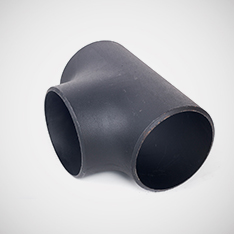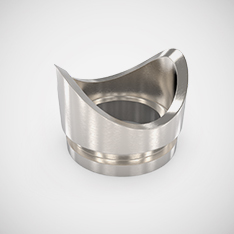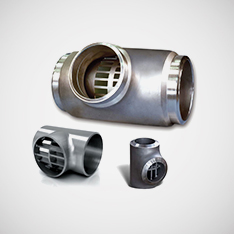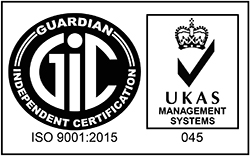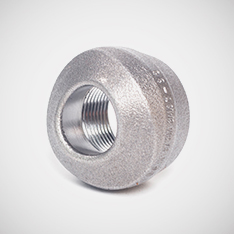
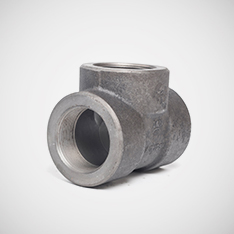
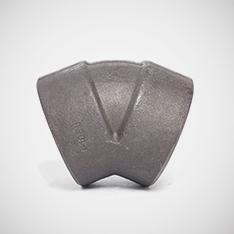
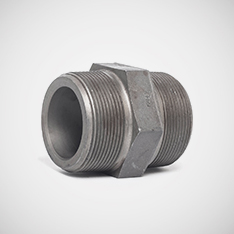
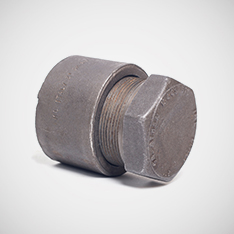
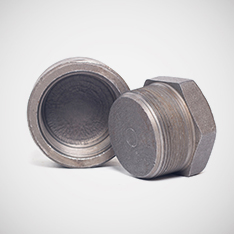
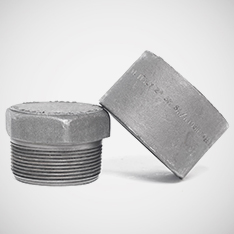
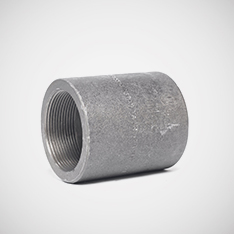
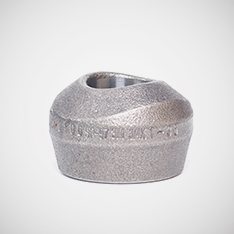
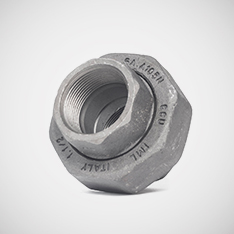
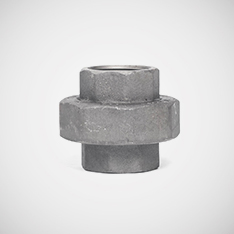
Forged Fittings
Saliran Group has over 10 years of expertise in the trading and supply of high-quality forged fittings with numerous happy customers all around the world. We supply a variety of forged fittings such as elbow, tee, nipple, plug, coupling, cap, bushing, union, cross, and branch fittings.
What are forged fittings?
A forged fitting is a part that is used to connect or branch small diameter piping systems. These forged fittings are usually made by forging and machining steel. General forged fittings have to go through several test such as chemical composition testing, appearance and hardness test, also NDT testing, etc. Forged fittings are customized to meet an extensive range of application requirements such as material grades and pressure.
Forged Fittings Types | ||
Type | Elbow Fittings | 45, 90 Degree Threaded and Socket Weld |
Tee Fittings | Equal and Reducing, Threaded and Socket Weld | |
Nipple Fittings | Hex Head and Reducing | |
Plug Fittings | Hex Head, Round Head & Square Head | |
Coupling Fittings | Full, Half, Reducing, Threaded and Socket Weld | |
Cap Fittings | Threaded and Socket Weld | |
Bushing Fittings | Hexagon, Reducing, Flush | |
Union Fittings | Threaded and Socket Weld | |
Cross Fittings | Threaded and Socket Weld | |
Branch Fittings | Reinforced Socket Outlet | |
Size Range | 1/4" (8mm), 3/8" (10mm), 1/2" (15mm), 3/4" (20mm), 1" (25mm), 1-1/4" (32mm), 1-1/2" (40mm), 2" (50mm), 2-1/2" (65mm), 3" (80mm), 4" (100mm) | |
Standard | ASME/ANSI 16.11, BS3799, BS1740, MSS SP-83, SP95, SP97 | |
Class | 3000#, 6000#, 9000# | |
Thread | NPT (ASME/ANSI B120-1), BSP, BSPT | |
Specification | |
Carbon Steel | ASME/ASTM SA/A105N |
High Yield Carbon Steel | ASTM A694 F42/ 46/ 52/ 60/ 65/ 70 |
Low Temp Carbon Steel | ASME/ASTM SA/A350 LF1/ 2/ 3/ 6 |
Chrome Moly | ASME/ASTM SA/A182 F2, F5, F9, F11, F12, F22, F91 |
Stainless Steel | ASME/ASTM SA/A182F304/304L, 316/316L, 309, 310, 304H, 310H, 317/317L, 321, 321H, 347, 347H, 904L |
Duplex/ Super Duplex | UNS S31803, S32205, S32750, S32760 |
Nickel Alloy | ASME/ASTM SB564, |
Remark | HIC, PED 2014/68/EU, NACE MR0175, NORSOK available |
Forged Fittings: What is it?
Forged fittings are specialized components in piping systems, manufactured through a forging process that involves shaping metal at elevated temperatures. These fittings provide superior strength and durability, making them ideal for high-pressure applications in industries such as oil and gas. They ensure reliable and leak-resistant connections within piping networks.
Types and Function of different Forged Fittings
Forged fittings come in various types, each designed for specific functions within piping systems. Common types include elbow fittings, tee fittings , coupling fittings, union fittings, crosse fittings, and cap fittings. Elbow fittings facilitate directional changes, tee fittings allow the merging or splitting of flow, and coupling fittings assist in join two pipes together. Union fittings provide easy disassembly for maintenance or repairs, while cross fittings enable the intersection of four pipes. Cap fittings serve to close the end of a pipe, offering protection and sealing. The manufacturing process of forging enhances the strength and durability of these fittings, making them suitable for high-pressure applications in industries like oil and gas. Their diverse shapes and functions contribute to the efficiency, reliability, and safety of piping systems, ensuring seamless and secure connections in various industrial settings.
Standard of Forged Fittings in Malaysia
The standard of forged fittings in Malaysia are followed by international standards such as ASME B16.11 (American Society of Mechanical Engineers) and MSS SP-83 (Manufacturers Standardization Society of the Valve and Fittings Industry). These standards specify the dimensions, materials, tolerances, and testing requirements for butt-weld fittings.
The materials commonly used for forged fittings in Malaysia include:
- carbon steel ( ASTM SA/A105N)
- high-yield carbon steel (ASTM A694 F42)
- low-temperature carbon steel (ASME SA/A350 LF1)
- chrome moly (ASTM SA/A182F2)
- stainless steel (ASTM SA/A182F304/304L)
- duplex/super duplex (UNS S31803, S32205, S32750, S32760)
- nickel alloys (such as Inconel, Monel, Incoloy, Hastelloy).
It is important to consult the specific standards and codes applicable to the project or industry to ensure compliance with the required standards for forged fittings in Malaysia
why we need to choose butt weld fittings or forged fittings?
The choice between butt weld fittings and forged fittings in piping systems depends on various factors such as the application, working conditions, material requirements, and the level of structural integrity needed. Here are some considerations for choosing between butt weld fittings and forged fittings:
- Application Requirements:
Commonly Butt Weld Fittings are used for larger pipe sizes and high-pressure applications. They offer smooth flow characteristics and are suitable for critical processes where structural integrity is paramount. Forged Fittings are ideal for smaller pipe sizes and high-pressure applications. They are well-suited for critical services, particularly in industries like oil and gas, where the forged manufacturing process ensures enhanced strength and durability.
- Material Compatibility:
Butt Weld Fittings often preferred for applications requiring specific materials, as they can be easily customized. They are commonly used with stainless steel, carbon steel, and alloy materials. Forged Fittings is also available in a variety of materials, including stainless steel, carbon steel, and alloys. The forging process provides strength and uniformity, making them suitable for demanding environments.
- Installation and Maintenance:
Butt Weld Fittings require welding during installation, demanding skilled labor and precision. While they offer a permanent and leak-free connection, modifications can be more challenging. But Forged Fittings are allow for easier installation and maintenance due to their threaded or socket-weld connections. They offer more flexibility and are often chosen for systems where disassembly and reconfiguration are frequent.
- Cost Considerations:
Butt Weld Fittings is initial material and labor costs may be higher due to welding requirements. However, the long-term durability and reliability may offset the initial investment. Generally, Forged Fittings are more cost-effective in terms of installation and maintenance, making them suitable for applications where frequent changes or modifications are expected.
Click here to know more about our Forged Fittings.

